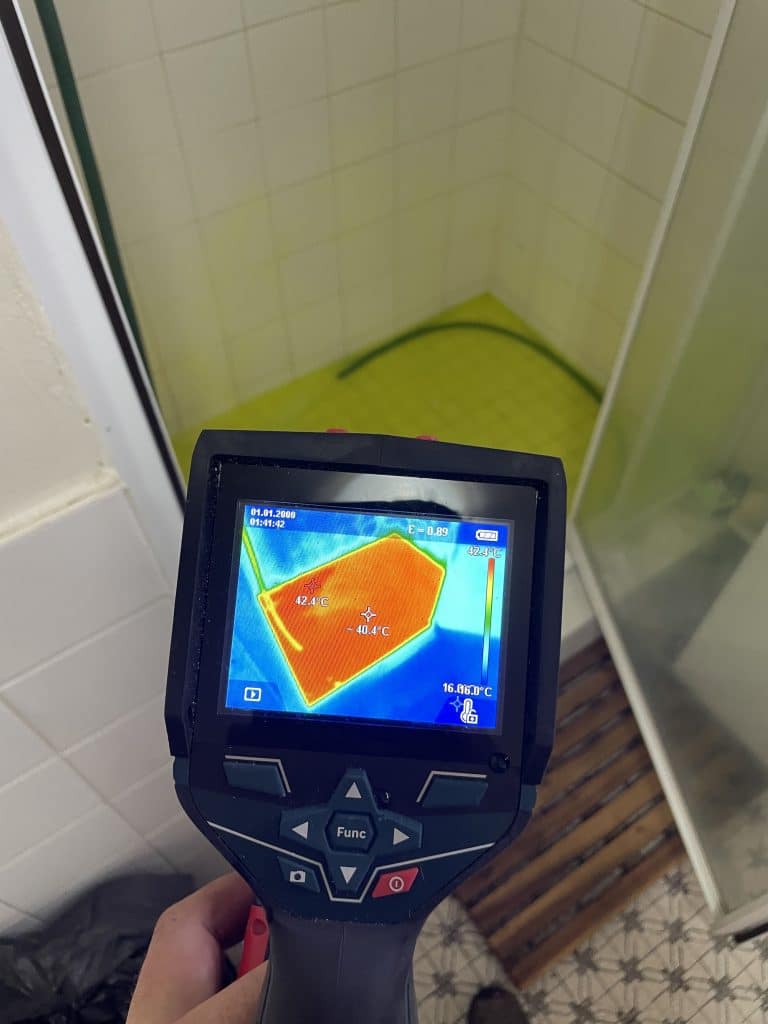Why older homes are more prone to hidden water and gas leaks
Older homes in Bayside, Melbourne have a rustic charm to them that’s hard to match, but behind the vintage features and seemingly solid construction, there can be hidden plumbing, electrical and maintenance issues that haven’t surfaced just yet! Out of which, water and gas leaks are one of the most common ones. Pipes made from outdated materials can corrode, crack, or shift over time, which goes unnoticed if the house hasn’t had a plumbing upgrade in decades. Hard to replace fixtures and pipes, paired with maintenance neglect, is why hidden water & gas leaks in Bayside Melbourne homes are so common.
Early Signs of Leaks
Among other things, the worst thing about gas and water leaks is that they are often slow to show. But they are not difficult to spot, if you know what you’re looking for. If you live in an old property, keep an eye out for these early signs of water & gas leaks in Bayside Melbourne homes:
Damp smells
A continuous damp or musty odour is one of the first signs of a hidden water leak. It usually means water is trapped behind walls, under floors, or in areas with poor ventilation. In older homes, this can easily be overlooked as “old house smell,” but if it’s consistent, you should get it inspected by professionals.
High water/gas bills
An unusual and sudden spike in your water or gas bill with no clear explanation or reason is another red flag. It could mean that there is a hidden leak that’s quietly wasting resources. If your usage hasn’t changed, but your bills have, it’s time to check for hidden issues.

Discoloured walls
If you see random yellowish stains, dark patches, or irregular marks appear on the walls and ceilings can, that means that your house has a water leakage inside the structure somewhere. These stains are caused by moisture soaking into plaster or drywall, and if left unchecked, they can lead to rot, mould, and expensive structural repairs.
Bubbling paint
After the discoloured walls, the bubbling paint starts appealing. When paint or plaster starts bubbling, flaking, or peeling for no obvious reason, it means there’s moisture trapped underneath for a long time. This is a common issue in older homes where pipework runs close to the surface and isn’t properly sealed off.
Hissing sounds
If you hear a faint hissing or whistling sound, especially near walls, floors, or gas appliances, don’t ignore it. It is a sign of a gas leak or high-pressure water escaping from a cracked pipe. Even if you can’t see the source, this sound in older homes should not be ignored.
Dangers of Undetected Leaks
Undetected leaks, be it water or gas, can be harmful for tenants and for the house’s structure. It can some short term and long term issues, that is why it is very important to pay attention to the signs we discussed above. Here are some dangers of undetected leaks
Health Risks
Prolonged exposure to damp conditions and hidden mould spores can trigger allergies, skin irritation, coughing, and respiratory problems. Gas leaks are even more dangerous, with the potential for headaches, dizziness, nausea, or in extreme cases, carbon monoxide poisoning. The longer these leaks go unnoticed, the higher the health risks become.
Structural damage
When it comes to water leaks, they can slowly weaken timber framing, warp floorboards, and erode plaster and insulation. Over time, this kind of hidden damage can compromise the structure of your home, leading to sagging walls, ceiling collapse, or even foundation issues. Something as small as a drip can end up causing thousands of dollars in repairs if left unchecked.
Mould
A poorly ventilated house with bad plumbing is the recipe for mould. When moisture is trapped behind walls or under floors, it creates the perfect breeding ground for mould. It can affect your indoor air quality and cause health issues like allergies, asthma, and respiratory irritation, especially in kids and older adults. Once it spreads, removing it properly often requires professional remediation.
Gas Safety Risks
A leaking gas pipe is a serious safety concern. Even a small gas leak can increase the risk of fire, explosion, or carbon monoxide poisoning. In older homes with outdated fittings or corroded pipes, the risk is even higher. If you ever smell gas or even suspect a leak, it’s important to leave the area and call a licensed gas fitter immediately.
Tips for Preventative Maintenance
Here are some preventative maintenance tips to avoid water & gas leaks in Bayside Melbourne home:
- Book annual plumbing inspections with a licensed plumber to catch issues before they escalate.
- Monitor your water and gas bills monthly; unexplained spikes often point to hidden leaks.
- Replace ageing pipes and rubber hoses, especially on appliances like washing machines and dishwashers.
- Upgrade old plumbing materials, such as galvanised steel or worn copper, to modern, corrosion-resistant alternatives.
- Install leak detection devices, including water sensors near wet areas and smart gas alarms for early alerts.
- Use exhaust fans or dehumidifiers in bathrooms and laundries to reduce moisture buildup and prevent mould.
- Clear gutters and downpipes regularly to avoid water pooling near the home's foundation or walls.
- Avoid placing heavy garden beds or pavers directly over old pipework to reduce pressure and the risk of damage.
Experts For The Prevention Of Water & Gas Leaks In Bayside, Melbourne
In older homes, it’s not a matter of if leaks will happen, but when. It is best to keep an eye out for the early signs of water and gas leaks and arrange regular maintenance and inspections, This way, professionals can not only catch the early leaks but also prevent any future ones as well.
At Plumb Well Solutions, we use modern tools and testing devices to check plumbing issues in old properties and offer long term solutions that will keep your home and health away from any damages.
